
The current political regime in Angola is presidentialism, in which the President of the Republic is also head of state and government; it is advised by a Council of Ministers, which together with the President form the national executive power. Legislative power rests with the 220 parliamentarians elected to the National Assembly. The President of the Republic, together with the parliament, appoints the majority of the members of the two highest bodies of the judiciary, that is, the Constitutional Court and the Supreme Court. The judiciary is still made up of the Court of Auditors and the Supreme Military Court.
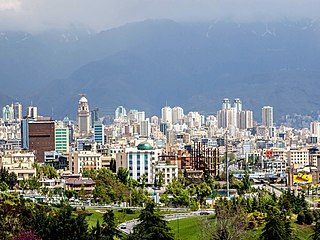
Iran is a mixed economy with a large state-owned sector. It is the world's 21st largest by purchasing power parity (PPP). Some 60% of Iran's economy is centrally planned. It is dominated by oil and gas production, although over 40 industries are directly involved in the Tehran Stock Exchange. The stock exchange has been one of the best performing exchanges in the world over the past decade. With 10% of the world's proven oil reserves and 15% of its gas reserves, Iran is considered an "energy superpower".

Gholam Reza Aghazadeh is an Iranian politician. Aghazadeh served as the Vice President for Atomic Energy of the Islamic Republic of Iran and the president of the Atomic Energy Organization of Iran from September 1997 until his resignation in July 2009. He is currently member of the Expediency Discernment Council.

The National Petrochemical Company (NPC), a subsidiary to the Iranian Petroleum Ministry, is owned by the government of the Islamic Republic of Iran. It is responsible for the development and operation of the country's petrochemical sector. Founded in 1964, NPC began its activities by operating a small fertilizer plant in Shiraz. Today, NPC is the second largest producer and exporter of petrochemicals in the Middle East. Over these years, it has not only expanded the range and volume of its products, but it has also taken steps in areas such as R&D to achieve more self-sufficiency.
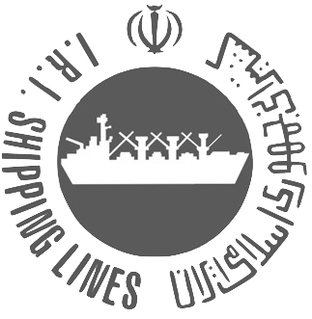
The Islamic Republic of Iran Shipping Line Group, commonly known by its business name IRISL Group, is a shipping line based in and owned by Iran. Its fleet comprises 115 ocean-going vessels with a total capacity of 3.3 million tons deadweight (DWT), with 87 being ocean-going vessels owned by IRISL and the remaining 28 ships being owned under the flags of subsidiary companies, including Khazar Shipping, Valfajr and Iran-India Shipping. They are manned by 6,000 personnel who work under the Iranian flag in the Caspian Sea, Persian Gulf, international waters and various ports of the world.
According to the Fourth Five-Year Economic Development Plan (2005–2010), the Privatization Organization of Iran affiliated with the Ministry of Economic Affairs and Finance is in charge of setting prices and ceding shares to the general public and on the Tehran Stock Exchange. The privatization effort is primarily backed by reformist members of the Iranian government and society who hope that privatization can bring about economic and social change.

Iran has the fourth largest oil reserves and the 2nd largest natural gas reserves in the world. The nation is a member of OPEC, and generates approximately 50% of state revenue through oil exports.

Seyed Mohammad Hossein Adeli is an Iranian politician, diplomat, economist and academic. He was the Secretary General of the Gas Exporting Countries Forum from 2014 until 2018. He is the founder of Ravand Institute. He was the chairman of Iran's first Investment Bank Amin Investment Bank until 2011. In May 2014, he received the Order of the Rising Sun from the Emperor of Japan, Akihito, the highest Order given to any Iranian National for his important role in the Iran–Japan Relation.
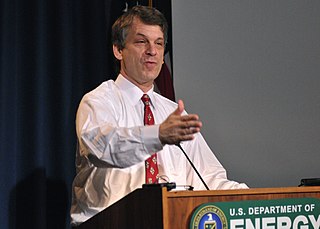
David B. Sandalow is the Inaugural Fellow at Columbia University's Center on Global Energy Policy. He has served in senior positions at the White House, State Department and U.S. Department of Energy. At Columbia, Sandalow also serves as Co-Director of the Energy and Environment Concentration at the School of International and Public Affairs.

The Republic of Azerbaijan and the European Union (EU) have maintained a positive relationship through the years and have become more closely linked since 1991. Azerbaijan is currently part of the European Neighborhood Policy, the Eastern Partnership and the Council of Europe. The EU is the largest foreign grant donor to and investor in Azerbaijan, both in the government sector and civil society, making available over 600 million EURO of bilateral EU assistance since 1992.

Prior to 1979, Iran's economic development was rapid. Traditionally an agrarian society, by the 1970s the country had undergone significant industrialization and economic modernization. This pace of growth had slowed dramatically by 1978 as capital flight reached $30 to $40 billion 1980 US dollars just before the revolution.

Sükhbaataryn Batbold is a prominent Mongolian political figure and leader, who was Prime Minister of Mongolia from 2009 to 2012, as well as Chairman of the Mongolian People's Party. He was previously Minister of Foreign Affairs in the government of his predecessor, Sanjaagiin Bayar.
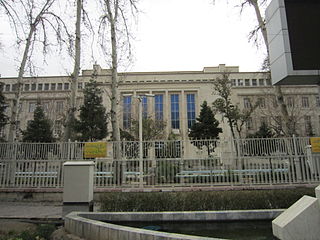
The Ministry of Economic Affairs and Finance's functions are:

Mohammad Sharif Malekzadeh is a former Vice President of Iran who served as the head of the Ministry of Cultural Heritage, Handicrafts and Tourism from 2012 to 2013. He has a doctorate in management and a post-doctorate in management. He is an associate professor of the university, advisor to Seyyed Mahmoud Hashemi Shahroudi in executive affairs [1], and until the end of the 9th government, vice president and head of the cultural heritage organization, handicrafts, and tourism. [2] He has previously held various government positions. Among them, we can refer to positions such as advisor to the president,[3] advisor to the minister of foreign affairs, special assistant to the minister of foreign affairs, administrative and financial deputy of the ministry of foreign affairs,[4] general secretary of Iranians abroad[5] and... He is currently the head of the Center for Research and Studies of Humanities-Islamic Sciences, the head of the World Halal Tourism Organization, and the head of the International Union of World University Presidents.[2][Requires Source] In 2020, Dr. Mohammad Sharif Malekzadeh was chosen as the Father of the Contemporary Science of World Tourism Management by the World University Presidents Association; he is one of the world's tourism geniuses and was introduced as one of the world's top 3000 scientists by Word Press magazine. Professor Malekzadeh, who is one of Iran's most famous people and has the National Medal of Service and Sheikh Baha'i Medal, as the creator of the MFT theory, was able to be the first inventor of the world's tourism industry by registering this important invention, which is based on improving the human spirit and mind.
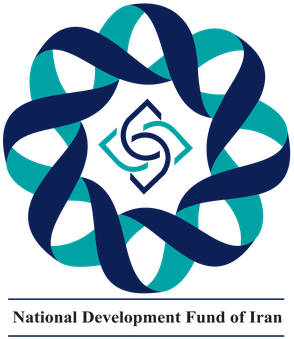
The National Development Fund of Iran is Iran's sovereign wealth fund. It was founded in 2011 to supplement the Oil Stabilization Fund. NDFI is independent of the government's budget. Based on Article 84 of the Fifth Five-year Socio-Economic Development Plan (2010–2015), the National Development Fund was established to transform oil and gas revenues to productive investment for future generation. It is a member of the International Forum of Sovereign Wealth Funds and therefore is signed up to the Santiago Principles on best practice in managing sovereign wealth funds. Withdrawing any money from this fund requires Khamenei's permission.

The International Institute for Sustainable Development (IISD) is an independent think tank founded in 1990 working to shape and inform international policy on sustainable development governance. The institute has three offices in Canada - Winnipeg, Ottawa, and Toronto, and one office in Geneva, Switzerland. It has over 150 staff and associates working in over 30 countries.

Volodymyr Romanovych Kupchak is a Ukrainian energy scientist and politician who served as a People's Deputy of Ukraine in the 7th Ukrainian Verkhovna Rada from Ukraine's 84th electoral district.
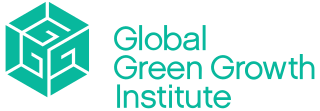
The Global Green Growth Institute (GGGI) is a treaty-based inter-governmental international development organization headquartered in Seoul, South Korea. The organization promotes green growth, a growth paradigm that is characterized by a balance of economic growth and environmental sustainability. Global Green Growth Institute provides technical support, research opportunities, and stakeholder engagement for green growth plans, especially in developing countries.

Iran–Kenya relations are bilateral relations between Iran and Kenya.
UCL Australia was an international campus of the University College London, located on Victoria Square in Adelaide, South Australia. It had three parts: the School of Energy and Resources (SERAus), the International Energy Policy Institute (IEPI) and a branch of UCL's Mullard Space Science Laboratory. UCL Australia described its university community as "welcoming, dynamic and influential." The campus closed in December 2017.


















